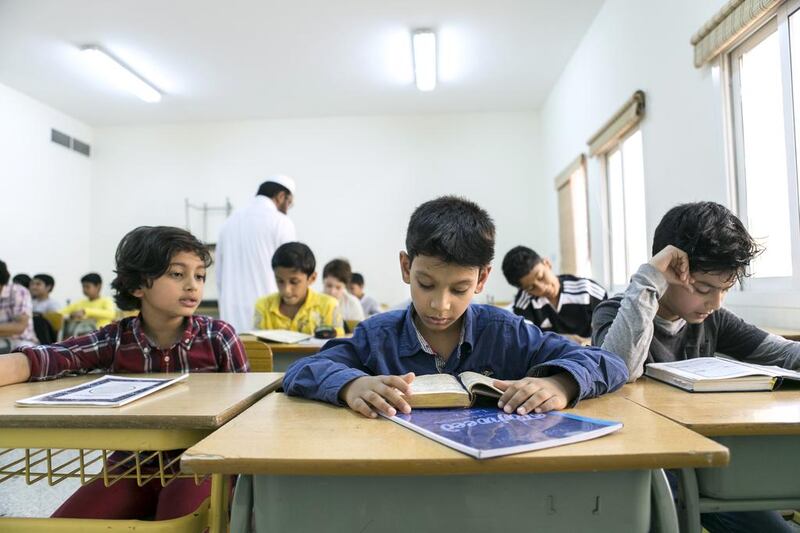This month the UAE will embark upon the licensing of every single teacher in the country. Ostensibly this seems like a very positive move: it will allow the teaching profession to be standardised and for all teachers to be held to account according to identical criteria.
Once accomplished the commodification of education in the emirates will be almost complete. Consumers (parents) will be assured that the product (teachers) whose services they purchase will always look and work in exactly the same way. In short, a teacher licence has the potential to act as a kite mark of professional quality.
But if we are not careful, however, this new approach to schooling, could do just the opposite. Therapist Esther Perel, a Belgian psychotherapist, captures the very essence of any fulfilling relationship which can be applied as easily to healthcare and education as it can to the institution of marriage: "a system", Perel says, "that places a premium on performance and reliability often exacerbates the very problem it is trying to solve ... More often than not ... beauty and flow ... unfurls in a safe, non-competitive, and non-result-oriented atmosphere."
Indeed, the oft-touted skills of creativity, critical thinking and collaboration that the World Economic Forum tells us students will need in the 21st century require just such an atmosphere and yet they are increasingly restricted by an examination performance industry which generates anxieties and inhibitions on the part of learners.
Students are told that they need to be risk-takers by their schools and yet they know that failing to achieve a required set of grades in high-stakes examinations could be the difference between their first-choice job or university and a compromise. Hardly the kind of atmosphere that encourages student creativity to bloom.
Until now, however, the foil to student-performance anxiety had rested delicately in the hands of teachers whose individual flair and creativity could offset the constraints of a standardised curriculum through the integration of their own personal interests and approaches. And yet there is now a risk that the creation of a baseline for teacher licensing will produce a lowest common denominator for the profession rather than raising the bar.
Current government demands being made on schools in the UK, and the way in which they are policed by the Office for Standards in Education, Children's Services and Skills, for example, have already begun to create a toxic atmosphere in England. Governors have interpreted and passed on these demands to school leaders, and they in turn have transmitted their pressures onto staff, placing unrealistic demands on them. As a consequence, there is a net shortfall of around 2,000 teachers per year in the UK as more educators leave the profession than join it.
Given that what gets measured gets managed, school leaders in the UAE will now have to work doubly hard to reassure teachers that their approaches to teaching are not simply valuable but are in fact essential if we hope to find creative and alternative solutions to our societies’ multiplying problems.
As such whilst it is practical to pursue a neoliberal approach to education for the ease of understanding, which quantifiable performance management brings in the short-term, the role of school leaders just got harder: they must now implement further standards whilst being careful not to standardise the life out of education over the long term.
Michael Lambert is Headmaster of Dubai College





